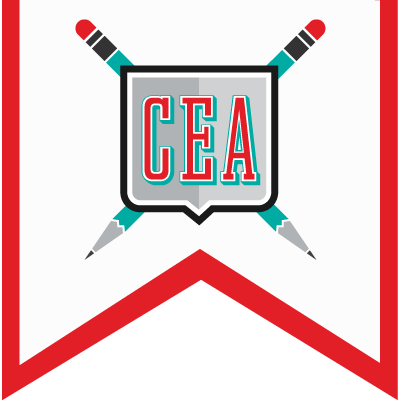We're here to help.
3 Ways High School Juniors (and Sophomores!) Should be Preparing for the College Essay
 Are you a high school junior or sophomore looking to get a jumpstart on your college admissions essay? You’re in the right place. Read on to find out more about this crucial piece of the college application puzzle and how you can set yourself up for success.
Are you a high school junior or sophomore looking to get a jumpstart on your college admissions essay? You’re in the right place. Read on to find out more about this crucial piece of the college application puzzle and how you can set yourself up for success.
Can you start your college essay too early?
Yes, there is such a thing as writing your college essay too early. For over a decade, our students (and their parents) have heard us deliver this refrain, and it remains true as it ever was.
At the sprightly age of 16 or 17, students are pulling from a limited set of life experiences for their college application essays. Every month of life lived offers new experiences and paths to maturity that could help them write more thoughtful and effective personal statements.
When should you start your college essay?
Ideally, students should begin writing their essays during their junior year or the summer before their senior year, but not before.
That said, there is no such thing as preparing to write your essay too early. Just because you shouldn’t pen your personal missive in full before junior year doesn’t mean you can’t start gearing up for the task.
Here are three things freshmen and sophomores can do to be better prepared when finally sitting down to tap out that admissions essay masterpiece:
1. Wrap Your Head Around the Task at Hand
Most students come to the application process with little experience writing personal statements. Very few have been tasked with writing these kinds of highly introspective essays in their school curriculum, and many feel uncomfortable writing at length in the first person. The college essay is also an assignment with a highly specific purpose. It is meant to reveal something to admissions about an applicant that may not be present anywhere else on the application, filling in blanks and rounding out your profile in their eyes.
Between the unfamiliar writing style and the pointed purpose of the admissions essay, students are bound to enter the endeavor in a haze of confusion. That is, unless they take the time to familiarize themselves with the college essay writing process and purpose. There is plenty of information to be found on the internet related to the admissions essay, and we at College Essay Advisors pride ourselves on our valuable resources and guides, which are designed specifically to help students orient themselves to the admissions essay writing assignment and better understand the why and how of this task. What makes for a successful essay topic? What makes an essay feel personal? And how much time do you need to work on any given phase of the process? Having the answers to these questions before you sit down to write will set a solid foundation for your approach and make the whole process a lot easier to navigate.
2. Keep a Journal
One of the most intimidating parts of the college essay writing process is topic selection. Our Advisors hear it all the time: “But what if I’m boring?” You’re not! We promise! The problem is, it’s difficult for anyone, even a professional college essay consultant (ahem), to isolate the stories and qualities that define someone on the spot. It helps immensely to have a shortlist of anecdotes and ideas to thumb through as you start the brainstorming process, which is where routine journaling comes in.
Once you have familiarized yourself with the defining characteristics of a powerful essay topic, you will be able to identify potential essay subjects as you live them. Is your summer experience at a science lab inspiring a desire to pursue cancer research in the future? Maybe a conversation with your grandmother is making you think about the meaning of traditions and heritage. You don’t have to write down fully fleshed-out ideas; sentence fragments, bullets, or even snippets of hilarious conversations are all worth jotting down if they strike you as being important or inspiring. It will be so much easier to dig into the topic selection and writing process if you have a notebook full of options to sift through at the start.
3. Map Out a Timeline
While now may not be the ideal time for you to begin writing your admissions essay, once you know what you need to accomplish and have a method for recording your most inspired ideas, you can plan for the future. No matter who you are or what you think your work habits are like, procrastination is the enemy of the essay. Very few students can produce incisive, personal writing in a pressure cooker, and good ideas often need time to percolate. It may feel like you can put off the brainstorming process until you need to begin writing your essay, but the magic ideas will more easily float to the surface if there is less stress involved in the task. Pull up your Google calendar and make brainstorming and drafting dates for the future. Be nice to yourself and start early enough in each phase of the process so you have the comfort of time to spare. Trust us, planning in advance will make the whole process less stressful and yield better results.
When should I start writing my college essays?
Aesop’s fable “The Grasshopper and the Ant” was written in the 6th century BC, but its lesson still holds true when it comes to writing your college essays—you want to prepare in advance rather than get started at the last minute. (Of course, we acknowledge that the industrious ant wasn’t also taking AP classes while balancing extracurriculars!) Our recommendation is to spread the work out and assign yourself multiple self-imposed deadlines long before the application due date. This translates to beginning the brainstorming process in the spring of junior year to solidify a topic before the summer, and then allow yourself plenty of time to reflect as you freewrite, draft, and edit. Ideally, you will be putting the final polish on your personal statement in July. Most colleges do not release their supplemental essays until August, so you’ll want to have wrapped up the personal statement in order to turn your attention to the myriad school-specific prompts by then. Set yourself the goal of finishing all of your essays by October 1st. No one should find themselves dressed as a vampire on October 31st still trying to articulate their interest in UChicago’s core curriculum—a bone-chilling thought.
How do I begin writing my college essay?
Here at College Essay Advisors, we love a good stew—and the best ones are slow-cooked, allowing enough time for flavors to develop and meld. Good essays similarly take time and involve a multi-step simmering process. The initial approach, however, is not about holding back, but rather dumping every possible idea onto the page. Editing comes later, and cutting off your ideas early on will inhibit the possibilities of exploration. Brainstorming helps silence that inner critic who insists on immediate perfection. We suggest you start by reading through the prompts, and then check out our brainstorming exercises and worksheets to really get cooking. During the early exploratory stages, don’t restrict yourself to only typing on your laptop; experiment with jotting down thoughts by hand in a journal (as suggested above) or keep a list of ideas that occur to you during the day on your phone’s Notes app. Once you have a solid sense of your topic and message, make a paragraph-by-paragraph outline that articulates what you plan to say; this is useful for envisioning structure and avoiding repetition. Does your outline read more like a resume than a narrative? If that’s the case, you’ll want to return to your brainstorming material to dig deeper for a story before you attempt a full rough draft.
How can College Essay Advisors help?
Our love of storytelling combined with our years of experience working with students on this very specific assignment means we are primed to help you identify distinct topics that will differentiate you as an applicant. We’ll also keep you on track so you don’t veer from your timeline. A winning college essay showcases unique creativity, a compelling narrative, and positive personal attributes—and those only become evident on the page after much behind-the-scenes reflection and hard work. Fill out a contact form to find out how we can help you achieve your collegiate goals!










